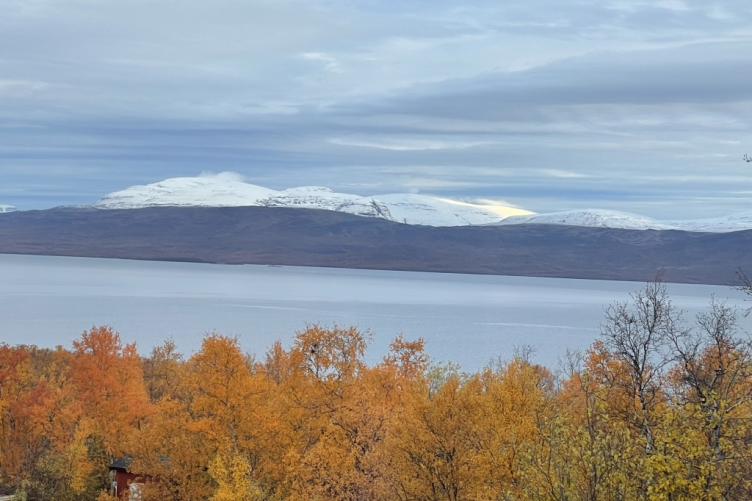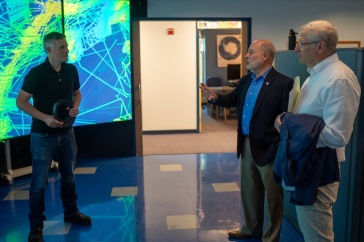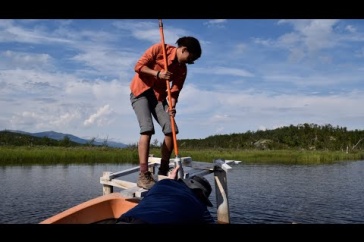
From the top of snowy Mount Washington to the frigid Alaskan tundra, UNH graduate students will soon have the opportunity to travel to cold regions of the globe, expand their climate research skills and work closely and respectfully with the Indigenous people who inhabit Arctic landscapes.
The Convergent Arctic Research Perspectives and Education (CARPE) program, a new graduate research traineeship funded by the National Science Foundation, will provide students accepted into the program with a scientific foundation of the changing Arctic climate and the opportunity to better understand those impacts on society.
“We’re incredibly excited to offer this program to our graduate students,” says Cari Moorhead, dean of the UNH Graduate School. “In addition to UNH’s status as an R1 research institution and our designation as a land-, sea- and space-grant university, we are fully invested in graduate student health and well-being. This transdisciplinary traineeship offers an enhanced graduate experience, where our students will interact with people from all over the world while improving their research, education and written and oral language skills.”
“The CARPE program is a comprehensive traineeship which includes professional development that students wouldn’t normally receive in their traditional graduate programs,” adds Ruth Varner, professor of Earth sciences, who is leading the CARPE traineeship. The program builds on UNH’s decades-long focus on Arctic research and the interdisciplinary NRESS Ph.D. program, she says, and will bring together students, faculty and staff to participate in the project.
With training sessions in science communication, decolonizing science and collecting field data on Arctic landscapes, CARPE will enhance the traditional graduate student educational experience in unique ways. Through various workshops and meetings, students will learn how to work alongside Indigenous people and local stakeholders to collaboratively address the myriad climate-related challenges faced by northern regions. Cold-region field trips and retreats are a part of the traineeship as well.
“The CARPE traineeship will guide students on ways to be more inclusive with their careers and research, to help them think about the communities where they are working and bring local knowledge and perspectives to their attention,” Varner says. “CARPE students will learn how to engage with Indigenous communities in the co-production of knowledge — developing research projects together to address the challenges those communities face on a daily basis.”
Due to the highly interdisciplinary approach to this traineeship, graduate students in CARPE will be encouraged to co-author a chapter of their thesis or dissertation with others in their cohort. Varner plans to recruit a total of 40 graduate students over the course of the five-year project, and applications are now being accepted for the fall 2022 semester.
An informational webinar with the CARPE program directors will be held Monday, Dec. 6 from 3 to 4 p.m. This webinar will provide an overview about the program and information on how to join the team of graduate students, faculty and researchers conducting convergent Arctic science. To learn more about the program, visit the CARPE website.
The Institute for the Study of Earth, Oceans, and Space (EOS) is UNH's largest research enterprise, comprising six centers with a focus on interdisciplinary, high-impact research on Earth and climate systems, space science, the marine environment, seafloor mapping and environmental acoustics. With more than $60 million in external funding secured annually, EOS fosters an intellectual and scientific environment that advances visionary scholarship and leadership in world-class research and graduate education.
-
Written By:
Rebecca Irelan | Institute for the Study of Earth, Oceans, and Space | rebecca.irelan@unh.edu | 603-862-0990



















































